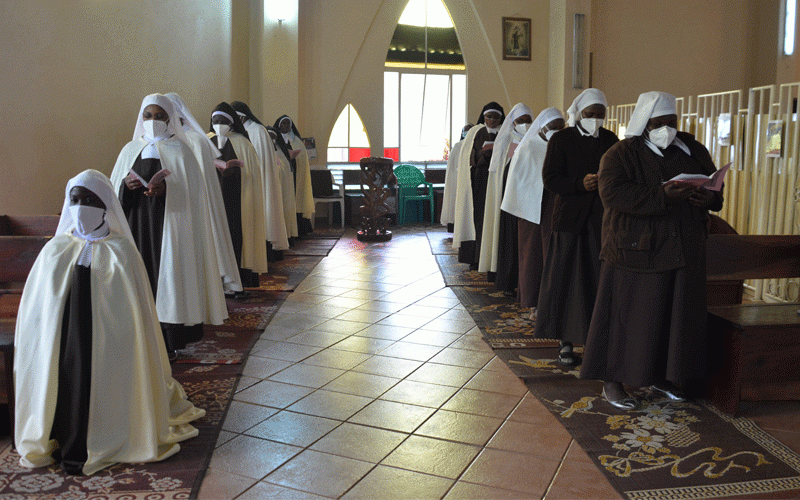Female members of Institutes of Consecrated Life and Societies of Apostolic Life (ICLSAL) in Africa face harassment and sexual abuse in the non-Catholic institutions where they work. A recent book, Moving into the Unreached Pastoral Frontiers: Making Visible the Impact of Catholic Sisters Working in Non-Catholic Institutions, by Sister Prof. Agnes Lucy Lando, sheds light on this issue. In her work, she compiles testimonies showing how some sisters, confronted with advances from male colleagues, are ridiculed, denied promotions, and subjected to unjust treatment when they refuse these advances.
During a discussion on the book on October 30, Prof. Mary Getui, a faculty member at the Catholic University of Eastern Africa, encouraged sisters working in non-Catholic environments not to suffer in silence and to seek support. According to her, while attractions can exist, sisters deserve respect and dignity due to their sacred commitment. “A sister is consecrated and must be respected as such,” she urged them to seek a mediator to help address these issues before resorting to more formal administrative steps.
The situation of sisters in these non-Catholic settings extends beyond sexual abuse. Other challenges include limited access to sacraments and feelings of isolation, as Sister Bridgita Mwawasi, Secretary General of the Association of Consecrated Women in Eastern and Central Africa (ACWECA) highlights. She calls on the Church to better integrate these sisters into diocesan pastoral plans and provide them with tailored support.
Additionally, Damaris Parsitau, director of the Nagel Institute for the Study of World Christianity, points out that religious sisters are not immune to the discrimination and abuse faced by other women in African societies, where sexual advances are sometimes normalized. The vow of celibacy makes sisters even more vulnerable to unwanted attention and inappropriate behavior from some men. Parsitau calls for action from the Church to fight these injustices and protect sisters from all forms of abuse.
Despite these challenges, the work of sisters in non-Catholic institutions is impactful. Sister Lando’s book highlights the efforts of these women, particularly in settings with high levels of poverty and limited government presence. Yet, as Sister Bridgita noted, their work often goes unrecognized. “They go to these places motivated by service to humanity, without seeking recognition,” she explained, emphasizing the need to highlight their contributions to community development and welfare.
The discussion around Sister Lando’s book also underscored the need to integrate sisters into non-Catholic institutions where interreligious dialogue remains challenging. Father Lawrence Njoroge suggested establishing discussions between institutions before sisters are assigned there to avoid cases of marginalization.
This book, published by Paulines Publications Africa, represents an important step toward greater visibility for religious sisters in Africa. It calls for better recognition of their impact and the establishment of institutional policies that respect their dignity and safety. As Prof. Ayiro, Vice-Chancellor of Daystar University, concluded, “The services provided by sisters need to be brought to the forefront.” He sees in this book a tool for interfaith dialogue and a means to promote mutual respect within increasingly diverse societies.
Ultimately, Moving into the Unreached Pastoral Frontiers paves the way for recognizing the unique challenges faced by sisters in non-Catholic contexts and for implementing concrete actions to support and protect them.
- CATHOLIC ARCHBISHOP IN GHANA HAILS POPE LEO XIV AS GOD’S GIFT - 23 mai 2025
- POPE LEO XIV TO APPROVE CANONIZATIONS - 22 mai 2025
- THE EVOLUTION OF PAPAL TRANSPORTATION - 20 mai 2025







